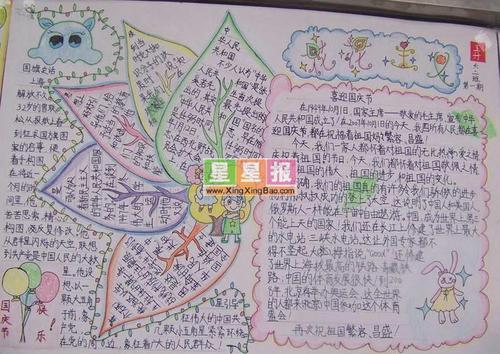英语短文改错顺口溜
益阳职业技术学院-经贸委
英语短文改错顺口溜
短文改错很简单,名词动词两主线;
每句话为一单位,错误藏在句子间;
名词可数不可数,形式是复还是单;
动词及物不及物,有无宾语在后边;
何种时态弄清楚,主动被动需判断;
非谓动词何形式,作何成分是关键;
形容副词互扰乱,何种级别是重点;
冠词用冠不用冠,定冠还是不定冠;
代词指代要一致,定宾主表认真选;
从句连词要判断,做不做成分仔细看;
遇到and要判断,到底并列还是选转;
若为并列就不变,若转but来更换;
介词副词按短语,习惯用法按习惯;
前后文章要连贯,审后没错对号添。
短文改错不难做,首先解题要沉着;
先看名词单复数,再看代词是否错;
动词时态是关键,过去现在须分辨;
及物动词后有宾,不及宾前定有介;
副词修饰形副动,名词前面常用形;
连词不能胡乱用,转折承接须分清;
固定搭配很重要,句意也须心中晓。
牢记上述八大条,做起题来快又好。
一看一致二词类,三多四少五搭配,六句七语八非谓,九看逻辑对不对,拼写无误便全对。
1. “一致”,指一致性方面的错误,包括主谓一致、时态一致、代词一致等。如:
All he said were right.
(谓语动词要与主语的数保持一致,应把were改成was)
2. “词类”,指词法,包括同义
词、反义词、易混词;名词的可数与不可数、单复数及所有
格;代词的格;定语从句中先行词和关系代词
的误用;名词性从句中连接词的误用;比较
范围的错误。如:
We should
remember what we all learnt our own language when
we were children. (what应改为
that)
She found
a wallet laying on the ground. (laying应改为lying)
3. “多”,指多词,句中多了主语、谓语、冠词、介词、副词等。如:
This
river is much more longer than that one.
(多了副词more)
From his answer we shall know the
something now. (不定代词前不加冠词,故去掉the)
4.
“少”,指少词,句中少了主语、谓语、冠词、介词、副词等。如:
Then I began
to pay more attention my pronunciation. (
attention 后缺少介词to)
5. “搭配”,指固定搭配。如:
We
could learn a second language by the same way. (
固定搭配应为in the same way)
6.“句”,指句型结构。如:
Long ago there had a war between the two
countries. (表“存在”的句型应为there be +
主语,故
把had改为was)
7. “语”,指语态。如:
He broke the law and punished. (punished
前加was)
8. “非谓”, 指非谓语动词。如:
Scientists
like Newton and Watt were usually interesting in
these facts. (interesting 改为
interested)
9. “逻辑”,指文章的逻辑意义,句与句、段与段之间使用的承接词是转折型、递增型还是
因果型,以及受空间、时间限定的词语的使用。如:
This is a lie, and
his parents did not know. (两句之间是转折型,and改为but)
10. “拼写”,指单词拼写错误。如:
The hurricane
destroied the houses along the coast. (destroied
改为destroyed
一、解题思路(三步解题法):
第一步、快速浏览全文,把握文章
的主要时态、人称及文章的主旨大意,顺便标记自己一
眼就能看出的错误。
第二步、细读文章的每一句话。一般要结合文章的前后句以及出题规律来做题。
第三步、代入已经修改完成的答案通读全文,看其是否通顺。
注意:在修改过程当中,一定要
相信自己的第一感觉。即一般来说,第一次填写的答案正
确率比较高,没有十足地把握不易轻易改正!
二、出题规律以及破解关键:
高考短文改错出题人一般会在以下八个方面进行出题。掌握出题规律之后做题便会事半功
倍!
1.动词:
(1)主要考察能力:时态、主谓是否一致、固定搭配。
(2)出题形式:
①时态混用
ie, Then the trouble
started. We can not open the door. So we asked the
policeman for
help.
讲解:很显然此句子主时态是一般过去式,因此应把can改为could。
②主谓不一致
ie, There were a football game on TV last
Saturday evening.
讲解:原句中a football
game决定了谓语动词必须用单数,所以应该把were改为was。
③固定搭配
ie,
I have given up somke. The dog doesn’t like the
smell.
讲解:give up doing
sth。因此动词somke应该改为somking。
2.名词:
(1)主要考察能力:单复数混用。
(2)出题形式:
单复数混用
ie, Helen is seventeen year old. She is very
busy.
讲解:“年龄多大了”应该为复数形式,应此应该把year改为years。
注意:代词单复数混用类似。
ie, As for a friendship, we
can readily find them in our classmates and other
people
around us.
讲解:显然因该把them改为it,指代前面提及的
friendship。此句话意思是“就友谊来说,
我们可以很容易地从我们的同学和周围的人中找到
。”
3.形容词副词
(1)主要考察能力:两者之间是否混用。
(2)出题形式:
形容词与副词混用。即该用形容词的地方原文用了副词,该用副词的地方原文用了形容词。
①副词代替正确形容词出现在文章当中
ie, During the football
season, Helen is much busier than usually.
讲解:很明显“与平时相比较更忙”,因此需要把usually改为usual。
②形容词代替正确副词出现在文章当中
ie, As the time clock
showed one minute and forty-two seconds leaft in
the game, she
began cheering excited, “Come
on-get going!”
讲解:原文意思是说比赛还剩一分四十二秒时,她开始兴奋地叫道--
---,显然应把excited
改为excitedly,用来修饰动词cheer。
4.介词
(1)主要考察能力:(特别是与动词的)固定搭配。
(2)出题形式:
①介词省略
ie, I’m surt you will get rid the
sorrow and unhappiness caused by the disaster.
讲解:get rid of 是固定搭配,意思为“摆脱,除去”
②介词多余
ie,My wife is also happy because of I have
given up smoking.
讲解:这里显然示对because of与because用
法的辨别区分。前者不能接句子,而后者
充当连词可以接句子。所以应该把of去掉。
③介词用错(一般为固定搭配)
ie, I pick out her false
hair and said, “Don’t be sad, Miss.”
讲解:pick
out应该为pick up。pick out挑选的意思;pick up捡起的意思。
5.连词
(1)主要考察能力:前后两句话之间的衔接关系。
常考三种关系:
but转折
and并列
because原因
①ie, One day, my wife
and I went shopping at a store. We drove the car
but we had a lot
of things to buy.
讲解:显然原文
中所要表达的意思是“我们开车去的原因是因为我们要买好多东西”,所以
应该把but改为becau
seasfor。
②ie,Chatting on line, students can
more freely express their feelings and opinions,
but
improve their English if they are talking
with native speakers.
讲解:原文表达的意思是“通过网上聊天,学生能够更
加轻松自由地表达自己的想法和观点,
并且如果他们同外国人交谈,能够提高他们的英语水平。”所以前
后句之间是并列关系,因
该把but改为and.
6.句式
(1)主要考察能力:常考that与what或whichhow与what之间的转换。
(2)出题形式:
①ie, She never has enough
time for that she wants to do.
讲解:原文意思是“她没有足够多
的时间来做自己想做的事情”,很明显应该把that改为
what。
注意:这一形式是改错常考点。
②ie, We Chinese people have
always been concerned about which has happened in
your area.
讲解:原文中需要一个连接词承接前后连个句子,这个连接词充当be
concerned about
引导宾语从句中的主语,所以应该把which改为what。
7. 冠词
(1)主要考察能力:句中冠词是否多余
(2)出题形式:
①冠词多余
ie, I sat in the front of the TV at
7 o’clock, when the game just began.
讲解:区分in
front of sth和in the front of
sth。解决这个问题记住一句顺口溜就可以了“有
the是内无the是外”,即in the
front of sth显然是指在事物(sth)内部空间的前面,比如说
I prefer to
travel in the front of the car.(我愿意坐在汽车的前面);而in
front of sth是指事
物(sth)外部空间的前面,比如说the car stops
in front of the house(汽车停在房前)。因此
原文中应该把the去掉。
②冠词遗漏
ie, As we all left home at early
age, we met lots of problems in our daily life.
讲解:at an ---- age固定搭配词组,表示“出于---年龄”,比如说at an
earlytender age,
可以翻译为“很小年幼的时候”
8.代词
(1)主要考察能力:代词是否多余,以及与反身代词之间的混用。
(2)出题形式:
①代词多余
ie, Don’t lose your heart. With the
help of the people all over the world, I’m sure
you will
get rid of the sorrow and
unhappiness.
讲解:lose heart:become
discouraged泄气;丧失勇气;而lose one’s heart(to
sbst):
fall in love爱上;钟情于。原文意思很明显是“别泄气”。所以应该把yo
ur去掉。一字之差,
离题千里。
②代词混用
ie, We were
living in a big family. We treate each other as
brothers and sisters. If any one
of them had
any difficulty, the other would help him or her
out.
讲解: 原文意思是说“我们生活在一个大家庭之中,彼此间相处如同兄弟姐妹。如果我们之
中谁有困难,其他人就会帮助他她解决困难。”所以应把them改为us;把other改为othe
rs。
注意:the other表示两者之中“另一个”; the
others表示在一个范围内的其他全部。如图
所示:
③代词遗漏
ie, A
teacher could make classes lively and interesting.
讲解: 应该在classes前加his,表示“使他的课堂生动有趣”。



